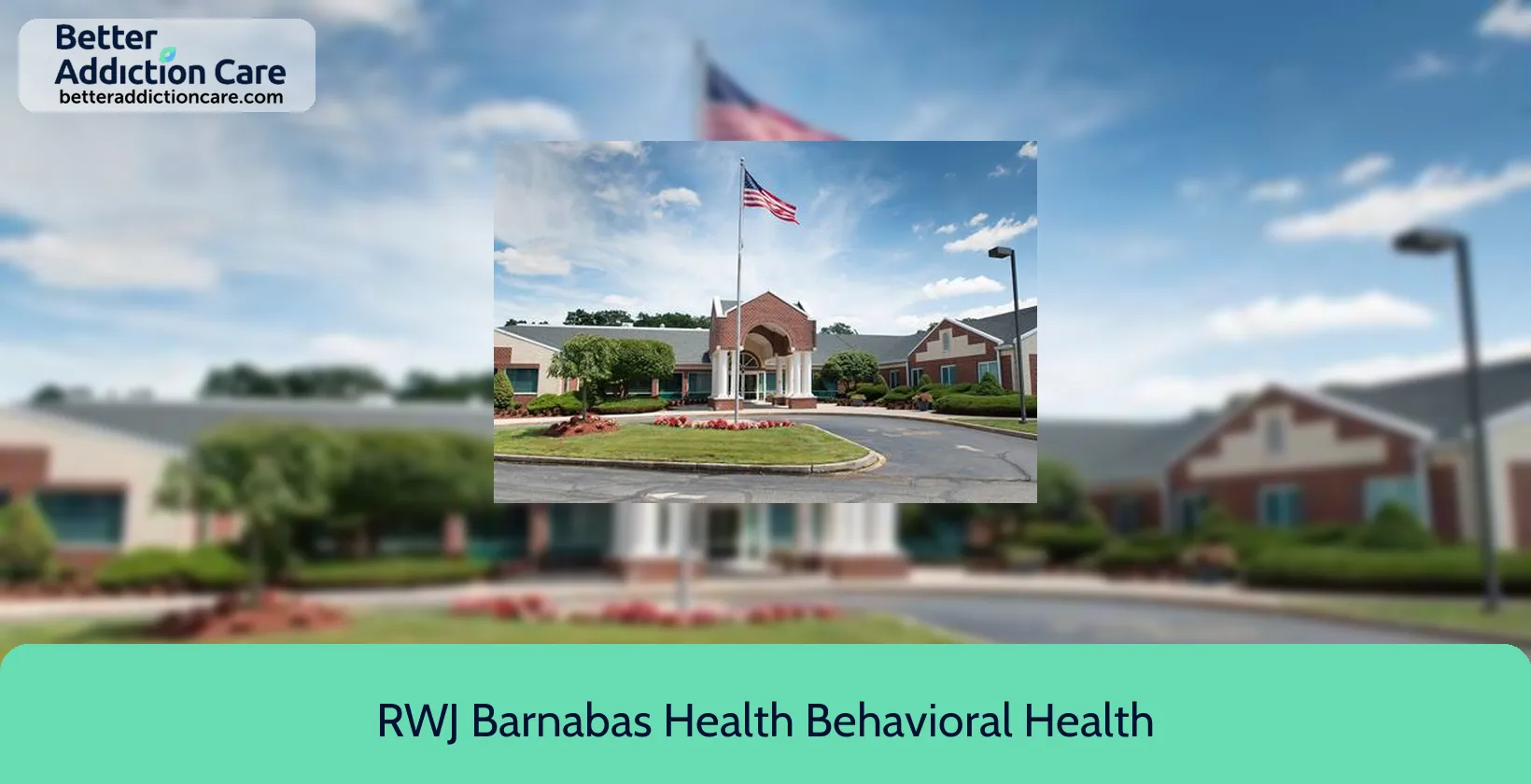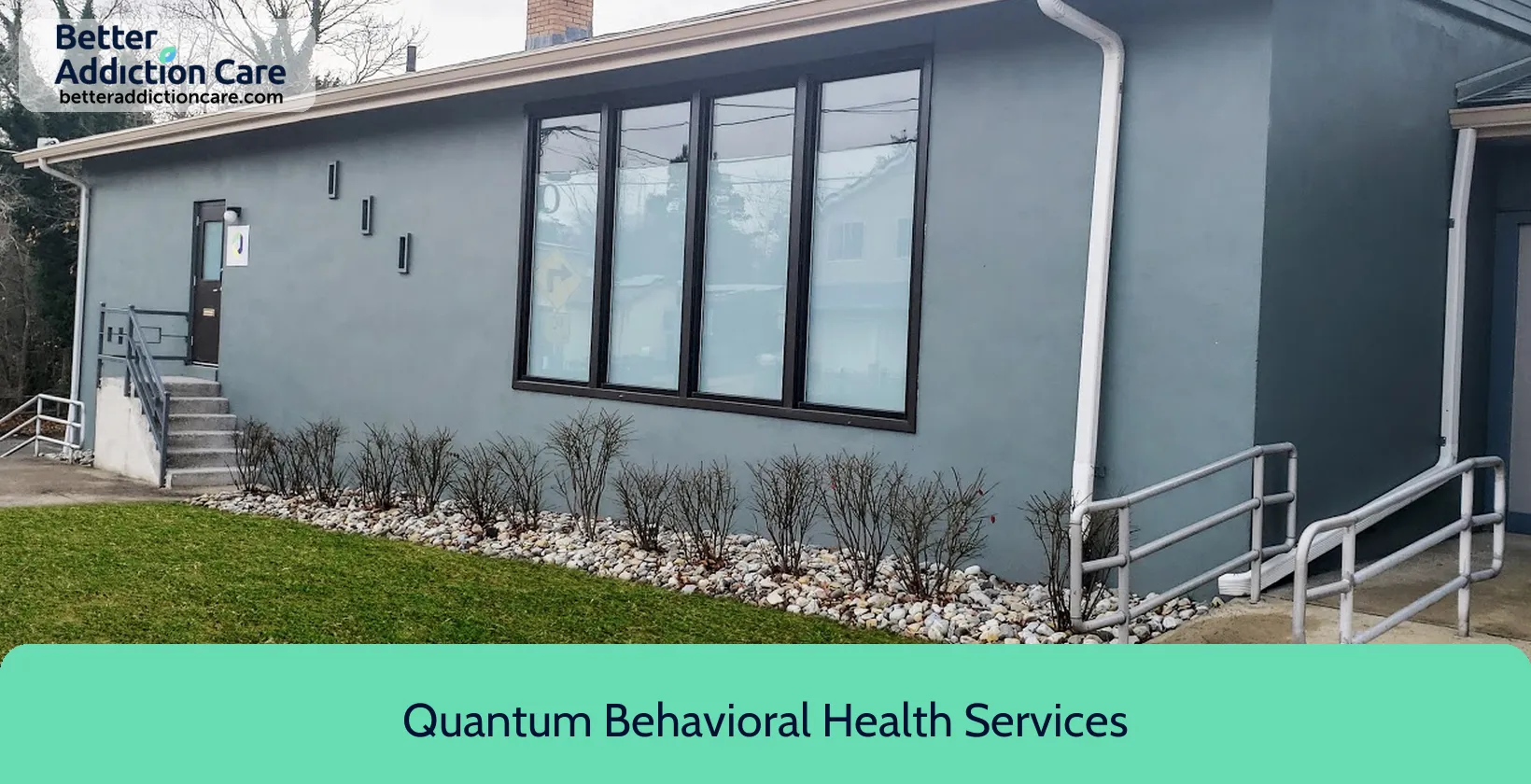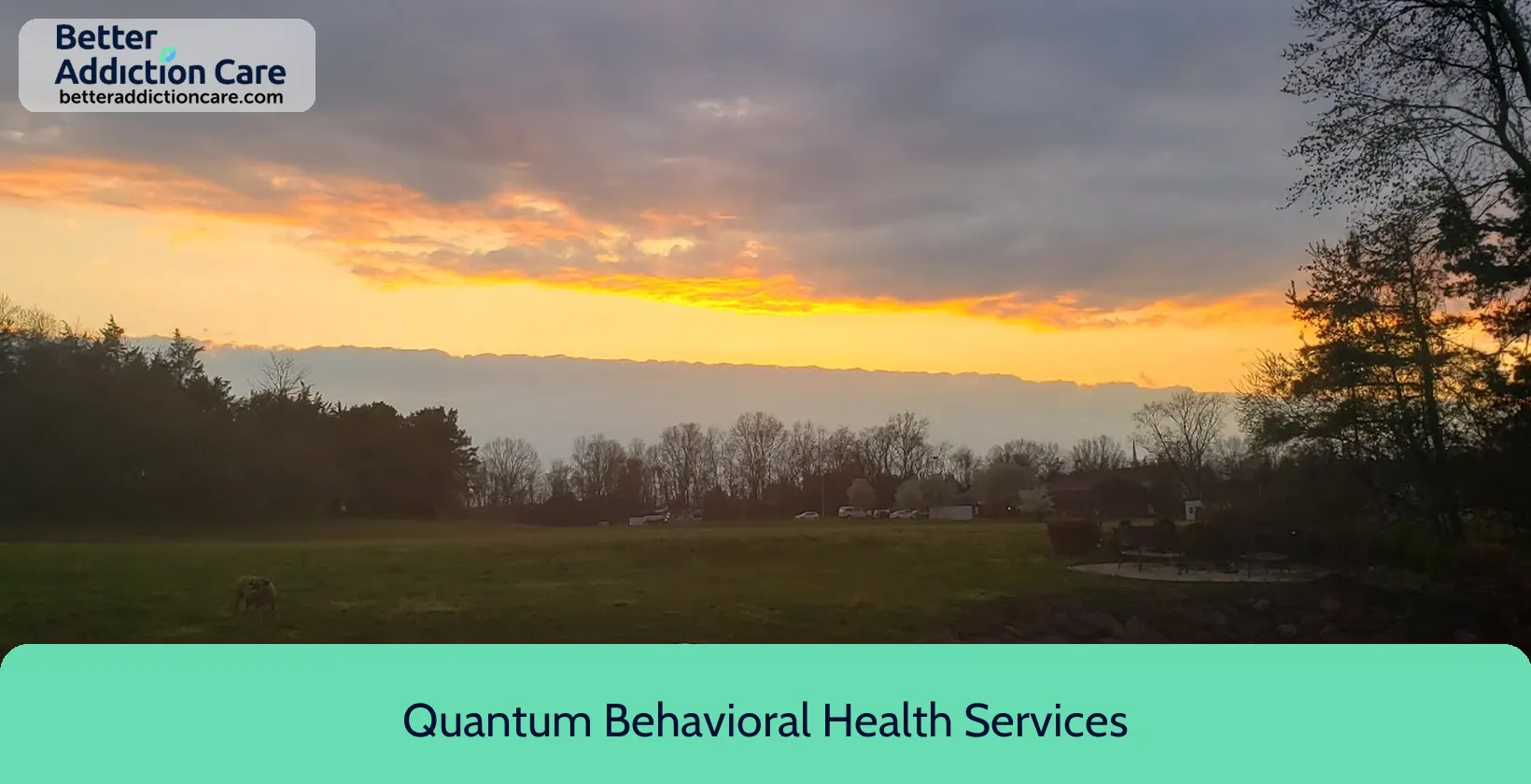Quantum Behavioral Health Services
Overview
Quantum Behavioral Health Services is a substance abuse treatment center for people seeking treatment near Ocean County. As part of their treatment modalities for recovery, Quantum Behavioral Health Services provides individual psychotherapy, trauma-related counseling, and creative arts therapy during treatment. Quantum Behavioral Health Services is located in Toms River, New Jersey, accepting medicare for treatment.
Quantum Behavioral Health Services at a Glance
Payment Options
- Medicare
- Medicaid
- Cash or self-payment
- Private health insurance
- Sliding fee scale (fee is based on income and other factors)
Assessments
- Comprehensive mental health assessment
- Comprehensive substance use assessment
- Screening for tobacco use
- Interim services for clients
- Screening for mental disorders
Age Groups
- Adults
- Seniors
- Young adults
Ancillary Services
- Case management service
- Suicide prevention services
- Mental health services
- Transportation assistance
Highlights About Quantum Behavioral Health Services
6.89/10
With an overall rating of 6.89/10, this facility has following balanced range of services. Alcohol Rehabilitation: 8.04/10, Drug Rehab and Detox: 6.31/10, Insurance and Payments: 6.00/10, Treatment Options: 7.21/10.-
Alcohol Rehabilitation 8.04
-
Treatment Options 7.21
-
Drug Rehab and Detox 6.31
-
Insurance and Payments 6.00
Accreditations
The Joint Commission:

The Joint Commission's addiction and behavioral health accreditation signifies a facility's commitment to high-quality care. It involves rigorous evaluations and assessments of clinical practices, ensuring effective, evidence-based treatment. Accreditation showcases a dedication to continuous improvement and patient safety, instilling trust among patients, families, and healthcare professionals. It's a mark of excellence in addiction and behavioral health care.
Treatment At Quantum Behavioral Health Services
Treatment Conditions
- Alcoholism
- Mental health treatment
- Substance use treatment
- Co-occurring Disorders
Care Levels
- Intensive outpatient treatment
- Outpatient
- Outpatient day treatment or partial hospitalization
- Regular outpatient treatment
- Aftercare
Treatment Modalities
- Individual psychotherapy
- Trauma-related counseling
- Creative Arts Therapy
- Cognitive behavioral therapy
- Substance use disorder counseling
Ancillary Services
Additional Services
- Pharmacotherapies administered during treatment
- Housing services
- Breathalyzer or blood alcohol testing
Special Programs
- Clients who have experienced trauma
- Clients with co-occurring mental and substance use disorders
Get Help Now
Common Questions About Quantum Behavioral Health Services
Contact Information
Other Facilities in Toms River

6.93

6.65

6.68

7.52

6.74

7.63
DISCLAIMER: The facility name, logo and brand are the property and registered trademarks of Evolve Recovery Center, and are being used for identification and informational purposes only. Use of these names, logos and brands shall not imply endorsement. BetterAddictionCare.com is not affiliated with or sponsored by Evolve Recovery Center.










